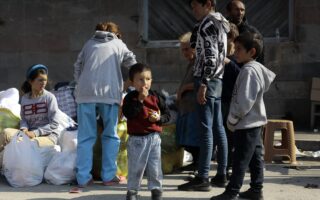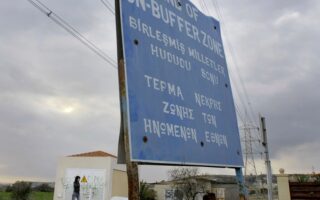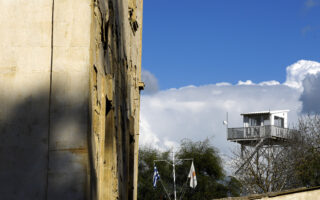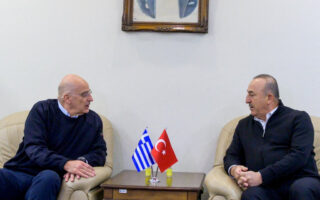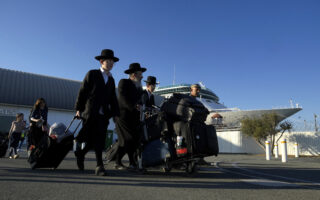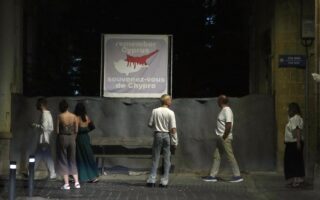Humanitarian diplomacy and its risks
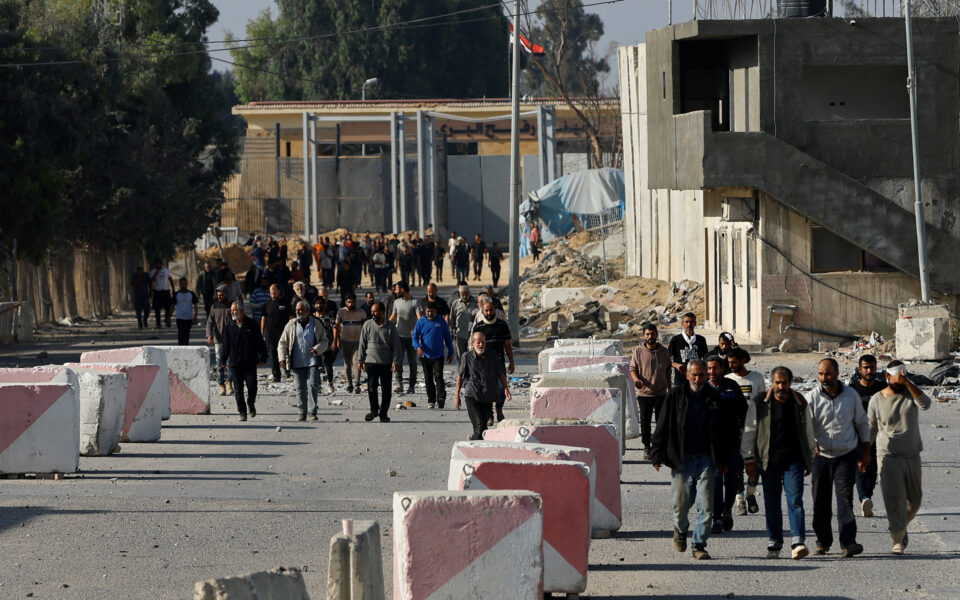
The actions undertaken by Cypriot diplomacy have intensified recently, while the need to create a humanitarian corridor to deal with the dramatic situation in the Gaza Strip is being seriously discussed. The planned sea corridor, in which Cyprus seeks a central role, was the main issue discussed by Cypriot Foreign Minister Constantinos Kombos on his recent trip to Amman, Jordan and Ramallah. The same issue was the subject of a long telephone conversation between President Nikos Christodoulides and Israeli Premier Benjamin Netanyahu.
The truth is that this undertaking is not simple. The logistical infrastructure of Cypriot hospitals is limited. Nicosia is discussing the utilization of the port of Limassol as an anchorage area for floating hospitals. The airports of Larnaca and Paphos could be used for the transfer of humanitarian relief, personnel and civilians, but it remains doubtful whether Cyprus can (or wishes) to take on the burden of such hosting for an indefinite period.
The question arises as to how the humanitarian aid that will be sent through Cyprus will finally reach its destination, which will be the Rafah border crossing, between Egypt and Gaza. However, it should be noted that Egyptian President Abdel Fattah al-Sisi has made it clear that he wants to minimize the consequences of a massive wave of Palestinian refugees arriving in or passing through Egypt.
For now, Cairo has set up a field hospital in Rafah. Next to it, there is a second one, which operates with funds from TIKA (Turkish Cooperation and Coordination Agency), the special department of the Turkish Ministry of Foreign Affairs with the responsibility of providing, among other things, humanitarian aid to foreign countries. In other words, while in Cyprus and Europe they have not yet decided exactly how the humanitarian corridor will be designed and what exactly it will consist of, the first thing that a Palestinian civilian sees when he or she crosses into Egypt from the Rafah border crossing, is two field hospitals, one of which has a Turkish flag flying.
As has been the case for years, in Gaza the human drama goes hand in hand with politics. Accusations against Israel of committing war crimes have been increasing in recent days. As a way out, Netanyahu is reportedly proposing to Western leaders that their countries transfer Palestinian patients to hospitals in neighboring countries, so as not to interrupt the military assault aimed at eradicating Hamas from Gaza. Israeli government sources say that the United Kingdom is seriously considering sending a ship with appropriate equipment and that the possibility of a special air corridor to Europe is being discussed. No one yet knows whether such an Israeli checkmate move will lessen the diplomatic implications of the broadcasted images of the bombings of the Jabalia refugee camp and elsewhere. However, the Israeli motives are clear.
But also from the Cypriot side, the strong interest shown by Nicosia has an equally important political aspect. Cypriot diplomacy does not forget that back in 2010, when again the Israeli bombardment of Gaza drew international attention to the need to provide humanitarian aid, Turkey wanted to make the most of it, seeking to send the Mavi Marmara ship to the port of Gaza, defying the Israeli military blockade.
The then AKEL government and its president Demetris Christofias, despite its pro-Palestinian ideological origins, prohibited the passage of the Turkish flotilla through Cypriot national waters. The reason, although never officially explained, was simple: The Mavi Marmara’s route, carefully planned by Ankara, indicated that the flotilla’s last stop before reaching Gaza would be the Turkish-occupied port of Famagusta. In Turkey’s diplomatic view, the symbolism was obvious: “Just as the Greek Cypriots enforce the international isolation of the Turkish Republic of Northern Cyprus (TRNC), that is exactly how the Israelis isolate the Palestinians of Gaza.” The departure of the flotilla from the blockaded port of Famagusta to the blockaded port of Gaza would demonstrate the solidarity of the tested “Turkish-Cypriot people” to the correspondingly tested Palestinians.
The political reflexes of the Christofias administration worked and incredible scenes unfolded, when Cypriot police detained perplexed Greek activists who were trying to head into the Turkish-occupied northern part of Cyprus to board the so-called “Gaza Freedom Flotilla.” After all this, independently and beyond the joint energy plans, relations between Cyprus and Israel acquired yet another good reason for further improvement.
Turkey and Turkish-Cypriot leader Ersin Tatar are now openly talking about a “two-state” solution in Cyprus, and it is possible that they are planning a new Mavi Marmara-type of mission – and this is exactly what Cyprus wants to prevent, when it seeks a central role in the international humanitarian corridor for the civilians of Gaza.
Professor Gabriel Haritos teaches history of Greek-Israeli-Cypriot political relations as an adjunct lecturer at the Ben-Gurion University of the Negev and as a visiting professor at Panteion University. He is a research fellow at the Hellenic Foundation for European and Foreign Policy (ELIAMEP).
